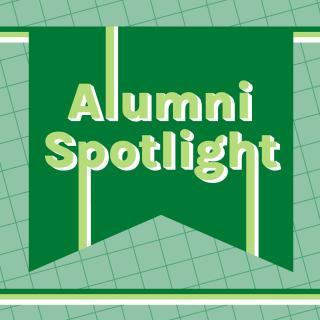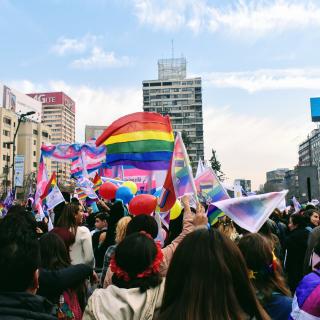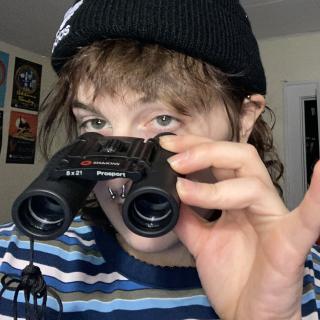With goals of becoming a translator and a writer, IES Abroad alum Eunice Shek was able to explore her academic and personal interests while studying abroad. Eunice is a recent graduate of Knox College with a B.A. in Asian Studies and Creative Writing. She spent the 2016-17 academic year studying abroad on the IES Abroad Nagoya Direct Enrollment – Nanzan University Program in the fall and the IES Abroad Dublin – Writers Program in the spring.
IES Abroad Diversity Relations Manager, Kandice Rose recently interviewed Eunice about how her Chinese American and pan-demic identities intersected with her study abroad experiences.
IES Abroad: How did you choose to study abroad in Nagoya?
Eunice Shek (ES): It has been one of my goals in life to study Japanese. Studying abroad in Japan is something that I have wanted to do since I started college. The interest in Japanese culture, such as graphic novels, anime, and music has been a large part of my life growing up.
I’ve been to Japan with some friends previously, as sort of a ‘we graduated high school, let’s do something amazing together’ sort of experience. Ever since then, I was like “OK, that week in Japan was phenomenal—it was life-changing and I want to go back.”
It was interesting, because as I was looking through the different [study abroad] programs that Knox already had pre-approved; I found classes that I was really interested in here and there. However, when I stumbled across the Nanzan with IES Abroad, I was like “No – this is what I want. This has the classes that will benefit me most.”
Not only does it have art classes like calligraphy, painting, and tea ceremony – it also offered creative writing in Japanese, as well as translation classes.
After I graduate, I would like to eventually become a translator, so therefore, studying Japanese, learning how Japanese creative writing works, and experiencing the entry training of translating from Japanese to English, which are two languages that are structured very differently, I felt was a very valuable experience.
[Nanzan University] also had a Kendo team, which was a bonus because this is a sport that I’ve wanted to learn, pretty much since I found out it existed. Kendo is Japanese sword fighting, which is similar to Western fencing in some respects, but is very different stylistically and in its cultural significance.
IES Abroad: We’ve spoken previously about how you identify. Could you share more about that?
ES: I identify as mixed ethnicity—Chinese and white. I grew up in the United States, so I’m a U.S. citizen. I also identify as a cisgender woman, who is demi-romantic.
For anyone who doesn’t know what that term means, demi-romantic is essentially where I only feel romantic attraction to people after I’ve known them for a very long time and have formed close relationships with them.
That’s something that I think that people know about in a sense, in the way that if you’re close, then, of course, you’ll feel attraction towards them, but it also sort-of negates the fact that not everyone feels that love-at-first-sight attraction.
I’ve also recently been questioning my sexuality. I call myself pan-demic in that I don’t necessarily have a particular gender that I’m attracted to. It doesn’t really matter – it’s more about them personally, the person themselves rather than identification records. I’ve also been questioning whether or not I’m on the asexual spectrum, which is something I’m still figuring out.
When I was applying to IES Abroad, I was still very much in this questioning phase. I was looking at the LBGTQ+ financial aid option and wondering if I should apply. I wasn’t sure if my identity would count, because it is not particularly included in those four or five main letters. I ended up applying anyway, but I just wanted to say that I really appreciated that the option was available to me.
IES Abroad: How did you find that your identity intersected with your study abroad experience in Nagoya?
ES: Growing up, in the background that I did before I came to Japan —it wasn’t that I was rejecting my Chinese identity, it was more that I didn’t feel like I fit in. Like, when I was with Americans, especially non-Asian people, then I was “the Asian”, and I definitely felt that I’m the token Asian in some of my friend groups.
But when I’m with Chinese people or especially Chinese people of my parent’s generation, then I felt like I wasn’t Chinese enough because I wasn’t fluent, I wasn’t full, and I didn’t really follow all of the Chinese social dynamics that are typical of the Chinese-American experience that I have had.
When I went to Japan, I was like “well, I am glad that I don’t look like a typical American” because I felt that in some ways, I was able to blend in better, and I wouldn’t have to deal with the stares that foreigners get.
One of my friends is full Caucasian, but she has a special relationship, essentially, honorary grandparents in Nagoya, which is a relationship that I think is amazing. She is pale and very much blonde-haired and blue-eyed, yet she also has a good Japanese accent because she’s been to Japan so many times to visit her family. Because of this, people will stare at her, be very surprised and ask if she’s half-Japanese, which genetically is definitely not the case.
I was glad that I was able to say that yes, I am an American citizen, that didn’t look like the stereotype of an American citizen. At the same time, going through my experience in Nagoya and being able to just be Asian in a sea of Asians and also coming across Chinese people, or Taiwanese people, or Chinese-speaking people who are living and working in Japan was an experience that was really kind of powerful for me. By the time I left Japan, I was proud to be Chinese.
IES Abroad: What advice would you give to a student who identified similarly to you, if they were interested in going to Japan?
ES: I would say go for it. Depending on how you identify, and how openly you identify, especially in terms of being within the LGBTQ+ umbrella, you may face some difficulties. There was a trans or non-gender binary conforming person in my group, and I think their experience was a bit more challenging. I didn’t know them very well, so I don’t know their full experience. From my own observations in Japan and from the orientation we experienced, it can be very difficult to be openly gay, bi, or lesbian, just because of the more conservative perceptions.
However, it's not impossible. I think individual perceptions vs. the perceived over-arching societal perception is not necessarily the same. It’s more about having a support group and being aware that you may face these challenges and have to press on in spite of them.
IES Abroad: After studying abroad in Nagoya, you went to study abroad in Dublin. How did you make the decision to jump to a completely different country and culture?
ES: When I was planning my study abroad, I knew I wanted to go to multiple places, it was just a question of where. When I first came to college, my original goals were to Japan, somewhere that speaks Chinese, and somewhere that speaks French because I studied French in high school.
Unfortunately, I wasn’t able to continue with French because of scheduling and class requirements in college. When I was going to study abroad info-sessions my freshman year, there was a representative from IES Abroad that was talking about the Dublin Writer's Program. As a Creative Writing major, I was intrigued. I didn’t know much about Ireland, but the classes looked really cool, especially the Celtic Mythology class, which is a topic that I’ve been fascinated by growing up. And because this wasn’t a class that I would be able to take on my home campus, I was like, “You know what? Maybe I should go to Ireland!”
I knew that my study abroad experience would most likely be a year-long experience, so while I was applying, it was more of a decision of, do I go to Ireland, do I go to China, do I go to somewhere that speaks French whether its Europe or Africa or Canada. When I was looking through the financial aid options, I decided to go to Dublin.
I think that with the Irish experience, I really enjoyed taking the classes with the faculty, and I really enjoyed trying to get to know Irish culture through them since they were my most direct connection with Irish people as a whole. Something that helped with my overall experience is the fact that Ireland is such a small country and travel is so easily accessible that you can go pretty much anywhere. Since it’s an English speaking country, it’s not as scary to travel by yourself to a place you don’t know. I think it really enabled me to do things more independently and try to find my own view of Ireland.
IES Abroad: How did your identities play out in Ireland? How was the response that you received while you were there?
ES: In terms of my queer identity, it wasn’t really something that came into play much while I was in Japan and Ireland. At least for me, the nature of how my demi-romantic and pan-demic identity plays out, is very much on the down low. It’s not something that’s immediately obvious and therefore is not something that someone would immediately question about me. What they would observe more is my citizenship, my ethnicity, my accent, and otherwise physical appearance.
When I was in Japan, it didn’t really come up. While I was in Ireland, it came up in that many of my friends also identified as being queer, whether it was bisexual or lesbian, or any other terms that fell under that umbrella.
What I think that what I felt most strongly about my identity in Ireland was my ethnicity. Some of it was the fact that I was coming directly from Japan, since I went from a place where the vast majority of people that I saw around me every day were Asian to a country that does have an Asian population but it’s not as necessarily as obvious. I think it was the first time that I really felt like a minority—because growing up in the U.S., I did have friends who were also Asian who could share my interests in Asian things. While I was in Ireland, I did see evidence of that Asian popular culture and Asian traditions, but I think it was more subdued, or it felt more subdued because of that very stark contrast.
I went to one of the Chinatown celebrations of Chinese New Year while I was in Dublin, and I would try to find Asian food stores. I think one of the biggest surprises for me was when I was in Galway. I came across a busker who was singing a song in Japanese that I heard a lot growing up, but never knew the name of. When I went to Japan, I would hear it sometimes—I think it was a song that my host-dad would’ve liked. It was an older Japanese song, Ue wo Muite Arukou, which essentially means looking up while walking. It’s a sad song, but also very cheerful.
While I was in Galway, hearing that busker play that song multiple times throughout the day, as I was wandering about the city, I felt nostalgic. I think at the time, I didn’t really realize it, but I was definitely going through a combination of culture shock and reverse culture shock all at once. Hearing [helped me realize] that just because I experienced these [two] cultures in two separate places, doesn’t mean that you can’t find similarities between the two of them. That’s a connection that I’ve been building throughout all my study abroad experiences.
IES Abroad: What advice would you give to a student who was interested in studying in Ireland who identifies similarly to you?
ES: You should find ways to experience the country for yourself and try to break away sometimes from pre-formed groups. Take some time to reach out to other people, whether it’s other Irish students or random Oompa-Loompas that you meet in a pub somewhere. (That actually happened. It was interesting.) If you break out and try to do things on your own as opposed to doing them as part of a large group activity, then I think it’s something that really shapes your experience.
You really have a chance to allow people to get to know you as a person as opposed to you as part of a larger group. That way, especially if you are someone who identifies differently than the majority of the group, it really gives you a chance to break down the stereotypes and experience things on an individual basis. [You can] find your own personal areas of peace, your own personal areas of interest, and your own personal areas of intersection that you wouldn’t necessarily be able to find in a group.
This is not to say that group activities aren’t good. They definitely bring about benefits in a different way. [However], I definitely felt that some of my strongest experiences were the ones that I did either by myself through independent choice, or through a few smaller groups, where we struck out on our own and went to see what lay down that unknown road.
IES Abroad: How would you describe the inter-cohort dynamics?
ES: My observations and other people’s observations from that group may differ because I’m more of a wallflower and don’t interact with large groups that often. It’s easier for me to interact with smaller groups, but it did seem that in certain [times] (like the trips we took throughout the semester) we were a cohesive cull. In other times, we broke into smaller groups of friends.
By the end, I think we all came away with at least one new very close friend from our group. I’m still in contact with [close friends that I have made], even though they live in different states that may or may not be feasible for me to visit a lot, but I still try and keep in contact with them and be a support for them in whatever way I can.
IES Abroad: Any other advice you’d like to share with students considering study abroad?
ES: I guess I would say to think about what interests you have and what will benefit your major. There is always a financial aspect, which I think is possible to overcome, you just have to do your research, do your homework, and work with your study abroad program and study abroad office to see what options are available to you.
[Regardless] of your area of study, there is a way to do it, even if you’re studying the sciences. There are ways to make study abroad work for you whether you are looking for something to do with your heritage, your area of study, or whether it’s something you’re just trying to do for yourself.
[And finally], the more that you’re able to interact with people from your country, which is hard, you’ll come away with something new and you’ll have learned more about yourself that you can use later on in life.
Do you want more advice, reflections and stories from our students? Check out the IES Abroad Blogs or contact an Ambassador who has recently returned from an IES Abroad program.




